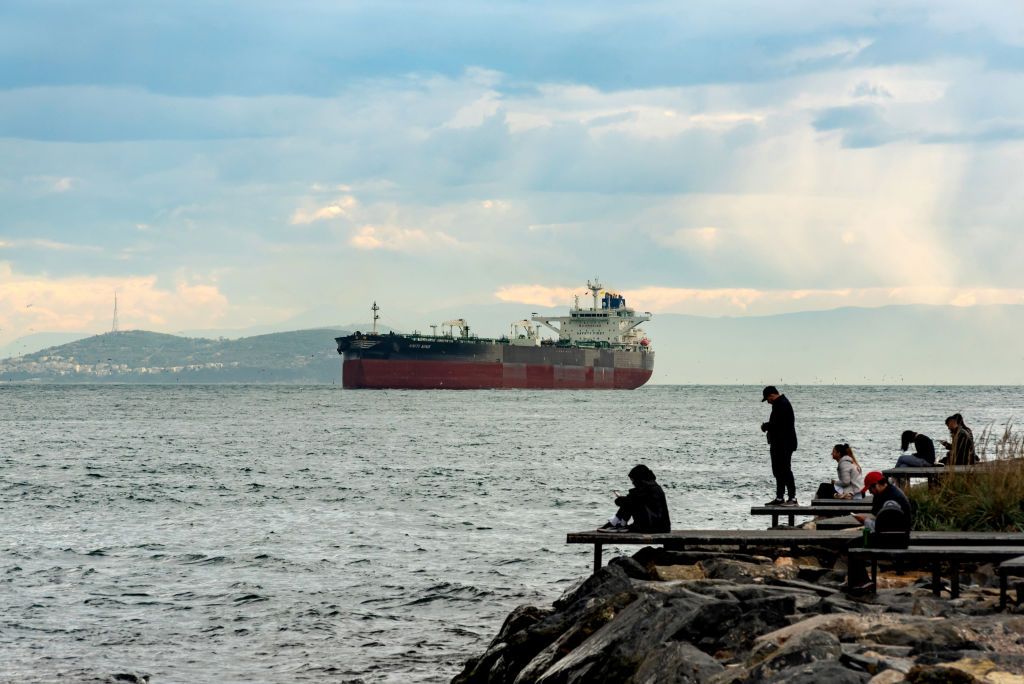In recent months, European countries have been engaged in private discussions about the possibility of seizing Russian oil tankers in the Baltic Sea. This comes after several incidents that have raised concerns about the security of underwater infrastructure and the activities of Moscow’s so-called “shadow fleet.” These discussions, reported by Politico on February 10, involve unnamed EU diplomats and government officials who are exploring options to address the growing tensions in the region. One key incident in late December involved damage to an undersea power cable connecting Finland and Estonia. Investigators believe the damage may have been caused by a tanker linked to Russia’s shadow fleet, a group of aging vessels often used to evade sanctions. The Eagle S vessel, which was carrying Russian oil, was detained in Finnish territorial waters as part of the investigation. Finnish authorities are still determining whether the damage was accidental or deliberate sabotage. This incident has severely strained relations between Russia and European nations, particularly those in the Baltic region.
NATO Secretary General Mark Rutte has emphasized the need for increased military presence in the Baltic Sea in response to these developments. “NATO will enhance its military presence in the Baltic Sea,” Rutte stated following the incident in the Gulf of Finland. Europe’s concerns go beyond the immediate threat posed by the damaged power cable; they also involve the broader issue of Russia’s ability to disrupt critical infrastructure. European intelligence services have warned since 2023 that Russia could be planning to sabotage undersea cables, wind turbines, and gas pipelines, particularly in the Nordic countries. This has led to heightened anxiety among NATO member states, with many calling for a more robust defense strategy in the region.
European countries are also drafting new legislation aimed at providing a legal basis for the seizure of Russian oil tankers. According to Politico, these measures could be implemented under international law, with potential justifications including environmental protection or combating piracy. Individual countries may also adopt national laws allowing them to arrest ships in more distant maritime zones. This approach would enable European nations to target Russia’s shadow fleet more effectively, as these vessels often operate in legally ambiguous areas. The proposed legislation reflects a growing consensus among European governments that stronger action is needed to counter Russia’s sanction-evasion tactics. Estonia’s Foreign Minister Margus Tsahkna has highlighted the significance of the Gulf of Finland, noting that nearly 50% of the sanctioned trade in Russian marine oil passes through this region.
Russia’s shadow fleet has become a focal point in the global effort to enforce sanctions against Moscow. Over the past year, the EU, the U.K., and the U.S. have imposed sanctions on vessels suspected of carrying Russian oil. In early February, Ukraine further escalated these measures by targeting the captains of the shadow fleet, including Russian citizens and at least one Iranian national. These individuals are accused of facilitating illicit oil exports through ship-to-ship transfers and other methods designed to bypass Western price caps. The shadow fleet’s operations have become increasingly sophisticated, involving a network of shell companies and flag-of-convenience jurisdictions. Ukraine’s move to impose sanctions on the individuals involved represents a new phase in the effort to disrupt these activities.
The situation in the Baltic Sea has also underscored the vulnerabilities of Europe’s undersea infrastructure. Since Russia’s full-scale invasion of Ukraine in 2022, concerns about hybrid attacks targeting energy and communication systems have grown. Initially, these concerns centered on cyberattacks and direct sabotage by Russian military forces. However, the involvement of Russia’s shadow fleet in incidents like the damaged power cable has revealed a more complex threat landscape. This has led to calls for greater international cooperation to protect critical infrastructure. Europe’s inaction on this issue has been described as a “security time bomb,” with the potential for future incidents to have far-reaching consequences for regional stability.
In conclusion, the recent incidents in the Baltic Sea have highlighted the multifaceted challenges posed by Russia’s actions. From the potential seizure of oil tankers to the drafting of new legislation and the protection of undersea infrastructure, European countries are grappling with a range of complex issues. The shadow fleet’s role in evading sanctions has made it a key target in the global response to Russia’s aggression, while the threat of sabotage has exposed vulnerabilities in the region’s critical infrastructure. As tensions continue to rise, the need for a coordinated and robust response becomes increasingly urgent. Europe’s ability to address these challenges will have significant implications for energy security, regional stability, and the effectiveness of international sanctions.












